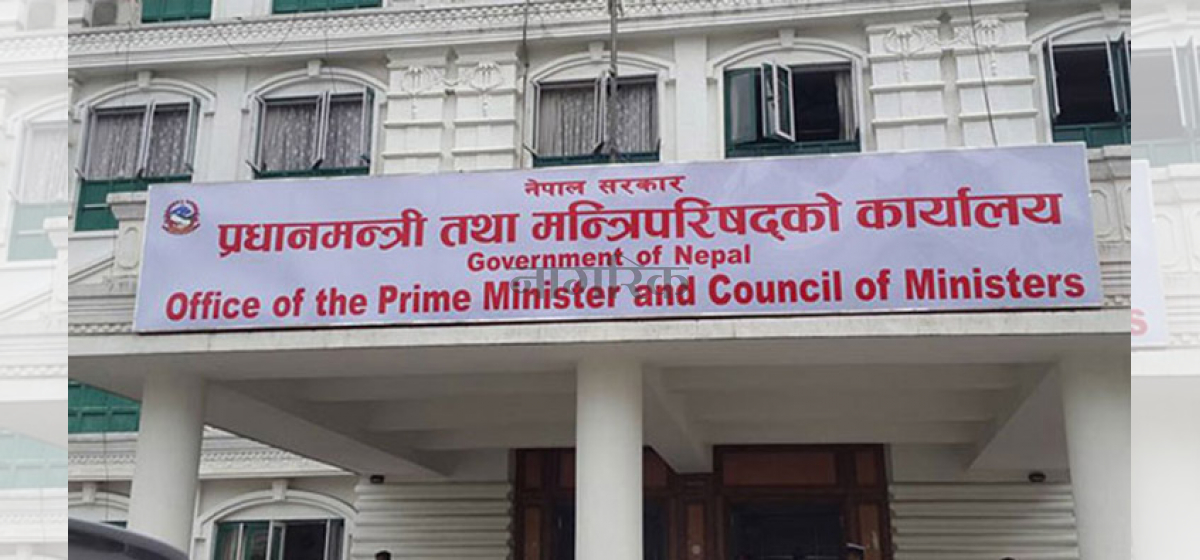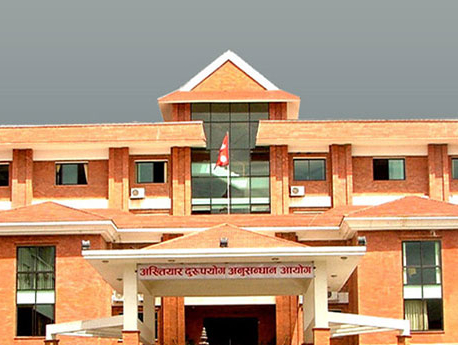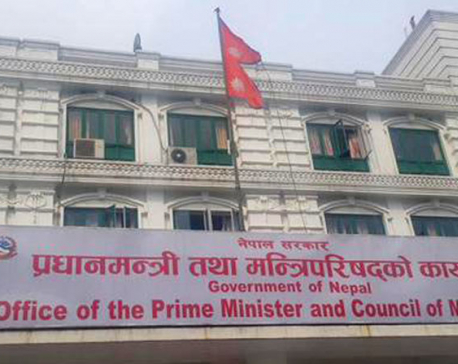
OR
Daily highly confidential reports sent by National Investigation Department to PM reaching wrong hands
Published On: February 14, 2023 10:04 PM NPT By: Tapendra Karki

KATHMANDU, Feb 14: It has been found that the daily reports sent by the National Investigation Department to the prime minister are opened and read by unrelated persons. It has been found that the special report sent to the prime minister is opened and read by the people in the prime minister's personal secretariat.
“When the people in the prime minister's personal secretariat opened and read the highly confidential information that only the prime minister could open and read, some information was found to have been leaked. When this happened, the secret information given by the National Investigation Department was not justified," said a senior official of the department. The department sends notices and reports to the prime minister in envelopes every day, and special reports are given semi-weekly and weekly.
According to the senior official of the department, the report submitted to the prime minister on a daily basis contains important issues and information, so it cannot be seen by anyone else, including the people in the prime minister's personal secretariat. The implementation of that report should be directed by the prime minister through the chief secretary to the relevant ministries and offices.
"The report should be read by Prime Minister Pushpa Kamal Dahal or it should be opened only by the executive head of the country; it does not make sense when those in his secretariat start reading it," said the official. The report to be opened by the prime minister can only be seen and read by the chief secretary with his permission. But the source claims that people who have gone to political appointments other than the government employees in the Prime Minister's Office have started accessing the classified information.
The department was brought under the Prime Minister's Office in 2074 BS. Now all the information of the department reaches the prime minister's desk. Before that, he had to ask the Ministry of Home Affairs for that report. After the prime minister saw the report, the chief secretary would take it to implementation. The report or information sent by the department in this way includes the issues of national importance, the activities of various ministries and offices and the 'surveillance' of various individuals. In the latest situation, apart from national security, the department is also assisting the Commission for the Investigation of Abuse of Authority (CIAA). "In the same way as the army, police and armed forces, the department is collecting information about national security, but there is also a detailed analysis of departmental ministries and officials. Such information is given daily. As a result, when such information is leaked, the government's activities have been affected in some respects," said a source in the department.
Security expert and former home secretary Dr Govinda Kusum said that it would be a serious crime from the point of view of national security if someone else opens and reads the report that should be received by the prime minister or a related person. Some information is strictly confidential, it should be implemented in secret. Therefore, it cannot be seen and read by anyone other than the person concerned and the head of the office," said Dr Kusum.
Daily reports are traditionally opened and read only by the prime minister or the chief executive around the world. The intelligence report of Nepal or the world is not like a formal report or letter, such reports are informal and reliable and should be implemented immediately. Since the reporting format is also different, some reports will be 'confirmed' and some reports will be mentioned as 'serious doubts', so only the executive head of the government can see them. In this way, the security officials claim that if a report or a report addressed to the executive head is opened, viewed, read and leaked by an irrelevant person, it is a huge crime.
According to Ganesh Adhikari, the former head of the National Investigation Department, other unrelated persons cannot open the reports sealed in envelops that can only be viewed by the executive head of the country. "Intelligence reports should be opened only by the executive head of the country, viewed and implemented through the chief secretary, which is very secret. Departmental ministers and relevant offices mentioned in the information should go to the implementation level without knowing where the information came from." If an unrelated person gets the information and the information is leaked, it creates a situation where illegal activities can be facilitated. That's why such reports should be confidential," said the former head of the department.
According to him, if the information is leaked, the employees at the government level should understand the seriousness of the information because they will try to fail rather than implement it. In some cases, based on the report submitted by the intelligence, the security system has to be prepared, corruption control and illegal activities have to be stopped, so it has to be kept secret. Similarly, information such as those relating to terrorism, disturbing national security are also included in the report, so if such information is leaked, the country will suffer serious damage.
In some cases, the information containing the paramount interest of the country has even reached the embassies abroad. We always have surveillance from where this happens. We have found that some of our intelligence reports are done by government employees. That is why it is our aim that unrelated people should not be able to see and read such reports, which is in the interest of the country," said the senior official of the National Investigation Department.
You May Like This

CIAA moves court against NID officer Khadka for presenting fake academic certificate
KATHMANDU, March 29: The Commission for Investigation of Abuse of Authority has filed a case against officer of the National... Read More...

Government appoints Adhikari as chief of National Investigation Department
KATHMANDU, Jan 7: Additional Inspector General of Police Ganesh Raj Adhikari has been appointed as the chief of the National... Read More...




Just In
- CM Kandel requests Finance Minister Pun to put Karnali province in priority in upcoming budget
- Australia reduces TR visa age limit and duration as it implements stricter regulations for foreign students
- Govt aims to surpass Rs 10 trillion GDP mark in next five years
- Govt appoints 77 Liaison Officers for mountain climbing management for spring season
- EC decides to permit public vehicles to operate freely on day of by-election
- Fugitive arrested after 26 years
- Indian Potash Ltd secures contract to bring 30,000 tons of urea within 107 days
- CAN adds four players to squad for T20 series against West Indies 'A'














Leave A Comment